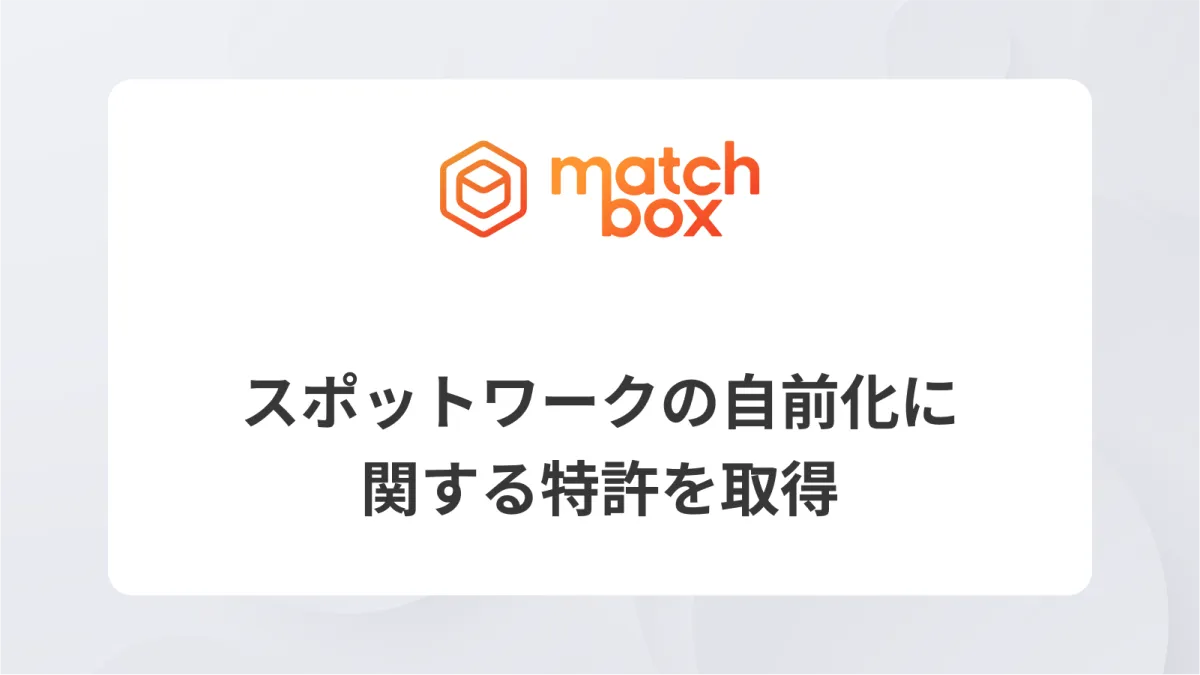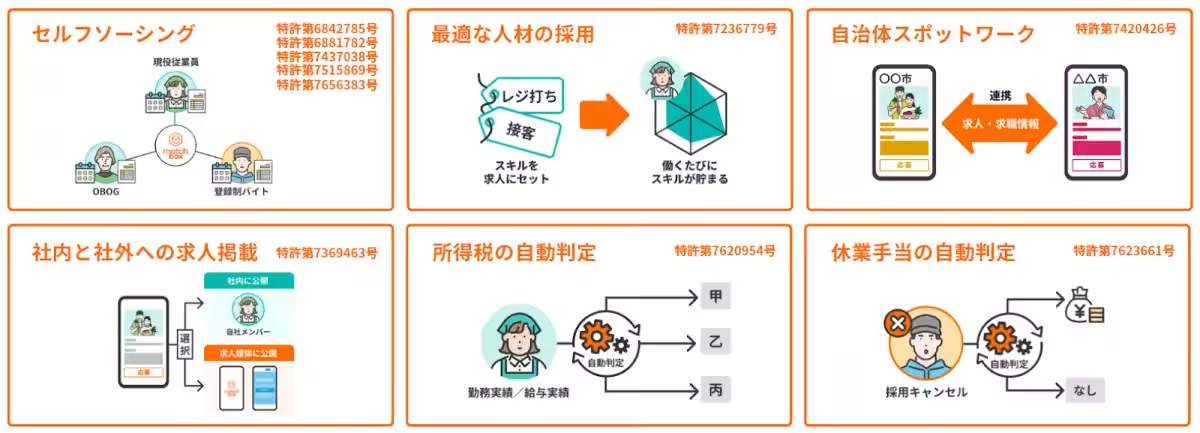

Matchbox Technologies Secures Innovative Patents for Self-Sourcing Spot Work Solutions
Matchbox Technologies Accelerates Innovation in Spot Work
Matchbox Technologies, a company headquartered in Niigata City, Japan, is making significant strides in the realm of flexible employment by acquiring new patents related to self-sourcing for spot work. As of now, they hold a total of 15 patents, after splitting applications for their existing intellectual property into independent patents for spot work acquisition, set to take effect in March and May of 2025.
The primary service, known as ‘matchbox’, is a powerful SaaS (Software as a Service) platform that connects various labor sources, including current employees, part-timers, gig workers, and alumni, creating a unique talent pool for businesses. This enables companies to effectively match job opportunities with workers on a short-term basis, which is essential in today’s fast-paced employment landscape.
Key Features of the Acquired Patents
1. Shift Management System for Internal Employees and External Experience Holders: This patent enables companies to distinguish between internal employees and external candidates when managing shifts. By maintaining a comprehensive database, it allows for efficient scheduling and record-keeping for employment applications and shift availability.
2. Shift Management System for External Non-Employees: Similarly, this patent focuses on integrating external non-employees into the company’s staffing logic, effectively allowing businesses to manage job offers flexibly based on current needs.
These advancements reflect Matchbox Technologies' commitment to enhancing its HR management platform, streamlining not just hiring but the entire labor process from recruitment to payroll management.
The Rise of Self-Sourcing in Spot Work
In recent years, a notable trend among large foodservice companies has been the shift towards self-sourcing for spot work, enabling them to secure flexible labor cost-effectively. This model benefits both employers and workers: businesses can easily adjust to fluctuating labor demands, while workers enjoy greater flexibility with job engagements.
While external platforms have facilitated this job market, there are undeniable issues. The instability of gig work can lead to uncertainty for workers, and businesses often face challenges related to the anonymous nature of external hiring. By fostering a self-sourcing environment, Matchbox Technologies aims to alleviate these problems, fostering stable relationships between companies and their workforce.
Understanding ‘Self-Sourcing’ and Its Importance
Through the self-sourcing process, companies can register a diverse array of workers—including current employees and alumni—into a proprietary database, offering trustworthy manpower as needed. This significantly reduces hiring costs and times, while ensuring that both employers and workers have a more stable and reliable work relationship.
Achievements and Future Goals
Currently, Matchbox Technologies has applied for over 30 patents both domestically and internationally, with a focus on key areas such as self-sourcing, compliance, maximum matching efficiency of labor, and local community engagement. Their broader aim includes improving labor protection and ensuring compliance, thereby addressing various social challenges within the workforce.
As Matchbox Technologies aspires to solve pressing labor issues through innovation, the company emphasizes the importance of protecting its intellectual property while contributing positively to society. They are committed to not only revolutionizing spot work through technology but also promoting a just and equitable employment environment.
Matchbox, as a self-sourcing HR product, helps companies build an individualized talent pool by integrating various worker types, thereby enhancing overall operational efficiency. The company strives to support their mission to create a world where both employers and employees can work flexibly and authentically.
To learn more about their patents and initiatives for addressing social issues through innovative staffing solutions, visit their patent and corporate pages.



Topics Business Technology)










【About Using Articles】
You can freely use the title and article content by linking to the page where the article is posted.
※ Images cannot be used.
【About Links】
Links are free to use.